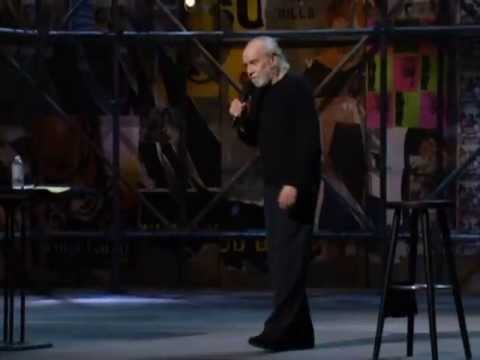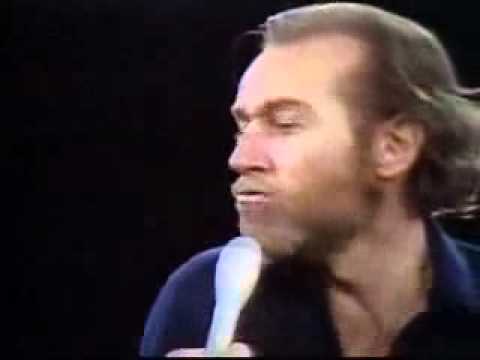Determining George Carlin’s best and worst jokes is a fool’s exercise — with 15 HBO specials, 20 comedy albums and countless talk and variety show appearances, how does one single out a solitary joke as the top or the flop? You’re going to twist my arm? Fine, okay, I’ll be that fool and give it a try. In a comedy career that spanned five decades, here are two bits that represent Carlin’s gleeful best and curmudgeonly worst…
Best Joke: Seven Dirty Words
Too obvious? Fair enough, but what other choice do I have? “Seven Dirty Words” represents peak Carlin in just about every way possible:
- Early Carlin showed a propensity for tapping into the counter-culture — the Hippy-Dippy Weatherman, for example, was a routine that comedians 10 years older wouldn’t touch. “Seven Dirty Words” took cultural provocation to an entirely different level, poking at an older generation’s hypocrisy and announcing that new sheriffs were in town when it came to policing acceptable language. On his Class Clown album, the routine was called “Seven Words You Can Never Say on Television” and it’s the “Never Say on Television” part that put the old guard on notice: Your rules aren’t our rules.
- While Rick Moranis skewered early 1980s Carlin routines for lazily investigating the origins of words, this is Carlin at his most linguistically curious and playful. As he rightly points out, the naughty seven are only words, man, given weight and severity only because society agrees to do so. Carlin actually got thrown in jail for performing the routine in Milwaukee, prompting Americans to step back and ask, “Just what the h-e-double-hockey-sticks are we doing here anyway?”
- It’s hard to find a comedy bit more historic than “Seven Dirty Words.” When a radio station played the routine on the air, outraged complaints to the FCC led to a case that went all the way to the Supreme Court. FCC v. Pacifica Foundation is the most significant legal decision involving comedy, with the court ruling that the routine was “indecent but not obscene” (handy for not getting thrown in jail). The Court also allowed the FCC to fine the radio station, setting new boundaries for what could and couldn’t be said over the public airwaves when children were likely to be listening.
Worst Joke: People Who Ought to Be Killed

The funny thing about Moranis’ Carlin impression was that, at some level, Carlin agreed with it. (He also told Moranis that it was “brutal, man, brutal.”) Early 1980s Carlin sensed that he was doomed to be remembered as an icon of an earlier time, and inspired by Sam Kinison and other angry comics, he developed a new persona that defined the last part of his career.
Righteous Anger Carlin was brutally caustic, injecting crooked politicians, religious hypocrites and corporate overlords with lethal doses of comedy venom. It was powerful stuff but there were times, as in “People Who Ought to Be Killed,” that this Carlin came dangerously close to Old Man Shouting at Clouds. “This next piece of material, like some good ideas, is fairly simple,” the comic explains. “It’s just a list of people who ought to be killed, starting with these people who read self-help books.”
Oof. Well, we’re not off to a great start. Firing at military leaders, for example, is punching up. But killing people who are looking to improve their lives? Annoying, sure. Deserve to be murdered? Er…
Yes, I get that “ought to be killed” is hyperbole, comic exaggeration designed to illustrate the extreme level of Carlin’s irritation. But couldn’t he have saved his most intense anger for, say, made-up weapons of mass destruction instead of people who wear visors? Do schmucks who attend motivational seminars really deserve to be smashed in the skull with golf clubs? If the Carlin who Moranis was mocking had gotten a little lazy with his wordplay, this version leaned too hard into faux rage, punching down at parents of honor students, people who wear baby slings, men who call their fathers “daddy,” people who mime a phone when talking about a phone call, people with answering machines, people who send family newsletters at the holidays… You get the idea.
“People Who Ought to Be Killed” may inspire tepid laughs, but the worst part is how miserable Carlin seemed telling it. Compare this cranky delivery to his joyful performance of “Seven Dirty Words” — it’s too bad late-era Carlin couldn’t have enjoyed the ride all the way to the end.

